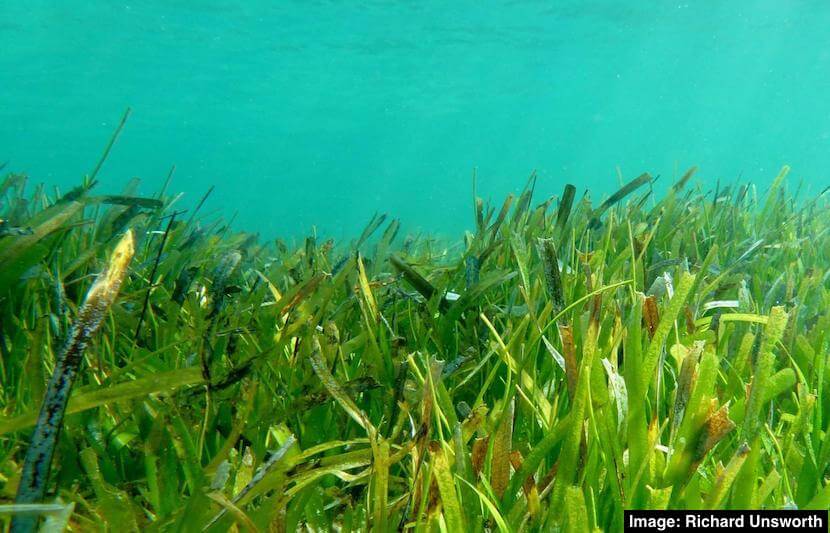As coral reefs continue to decline, it is becoming increasingly important to turn conservation efforts towards seagrass meadows, researchers urge.
Coral reefs have a long history of supporting many of the ocean’s organisms, and nearly 500 million people worldwide rely on coral reefs for food and income.
But climate change, overfishing and alterations in land use are quickly destroying the world’s coral reefs, and many people around the globe have accepted the nearly inevitable fate of the reefs.
They have switched their attention to seagrass as a means to support the fisheries that put money in their pocket and food on their plate.
But seagrass ecosystems are also suffering, and they don’t receive the conservation attention they deserve.
Benefits of seagrass meadows
Seagrass meadows, to this point, have been extremely productive, and their benefits are huge.
Similar to coral reefs, seagrass meadows serve as a food source and habitat capable of fostering a diverse group of marine organisms.
They can store carbon at a higher rate than rainforests and play an important role in filtering out wastewater and pollution from coastal ecosystems. In addition, many countries’ economies rely on seafood production supported by seagrass meadows.
Need to extend conservation efforts
The decline of coral reefs has received a lot of attention, funding and conservation efforts, but the marine community needs to become more realistic and broaden its efforts, Richard Unsworth, a research fellow in the Department of Science at Swansea University and lead author of the study, explained in a statement.
Seagrass meadows, too, are threatened, and conservation efforts are often ignored. Their conservation needs to be prioritized alongside coral reefs.
This starts with governments, NGOs and communities, Unsworth explained in a statement.
“For seagrass, there are practicable conservation opportunities to develop sustainable ways to respond to increased resource use,” he continued. “Targeted action now could restore and protect seagrass meadows to maintain and many ecosystem functions they provide.”
The research paper is published in the journal Current Biology. Unsworth conducted the study with researchers from Cardiff University, Uppsala University and James Cook University.
Conclusion
This study is not meant to dismiss the possibility of coral reef restoration, as many widespread, united efforts have shown signs of success.
But if people want the ocean to continue to be able to support fisheries and people, more efforts must be made to support the ecosystems that can withstand future climate, Unsworth explained in a statement.
“Seagrass meadows are one of those ecosystems and their conservation is paramount for the continued livelihoods and food security of many hundreds of millions of people,” he continued. “The time is right for global conservation efforts to conserve seagrass ecosystems.”



